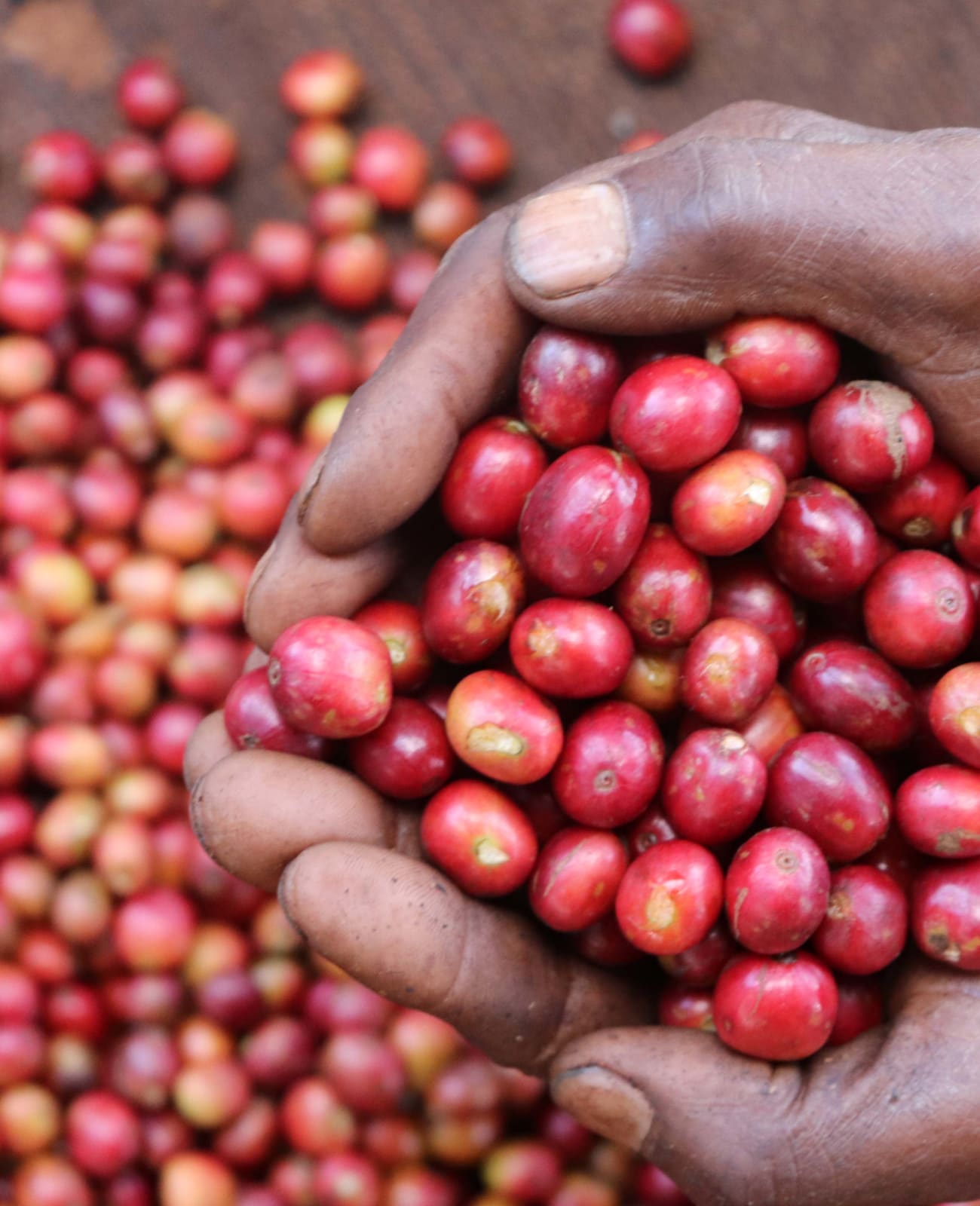This coffee comes to you from Kenya’s Kirinyaga county. You might have noticed that we usually share the names of the producer of the coffee you’re drinking, but as with almost all coffee from Kenya this one is only traceable to the factory, or mill level.
Most Kenyan farmers own between 1/8 to ¼ of a hectare, and often grow coffee alongside other crops, which means they rely on a central processing service to handle the sale and processing of their coffee.
Producers deliver coffee cherry to a factory, where the cooperative will sort, weigh, and issue payment for the delivery. The coffee is then blended with the rest of the day’s deliveries and goes on to be processed.
Because of this system, serving from hundreds to several thousands of smallholder farmers per factory, there is limited traceability down to the individual producers whose coffee comprises the lots.
Kaguyu Factory is located near Kerugoya town in the Ndia division of Kirinyaga county in Kenya. The factory services around 850 members, growing an average of 200 trees on each farm.
They’re growing most common varieties match those most typical in Kenya: SL-28, SL-34, and Ruiru 11.
The farms in this area have red volcanic soil, and the producers also grow tea, bananas, and corn on their plots, under shade provided by macadamia, eucalyptus, and gravellea trees.
Coffee crops are picked ripe and brought to the factory for depulping, washing, and soaking; farmers receive training every year from the factory manager, and “field days” hosted by the Ministry of Agriculture and agrochemical companies. The factory’s water comes from the Rutui river, and there are soaking pits for recycling the water.
Read more about the intricacies of Kenyan coffees at Cafe Import’s Harvest Report: Kenya 2020 – Complicated Is Beautiful.






